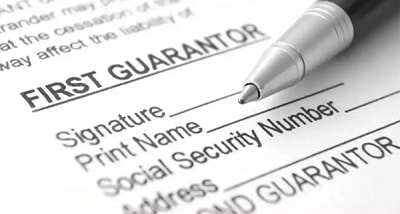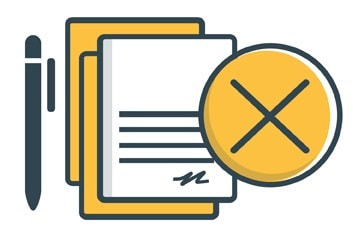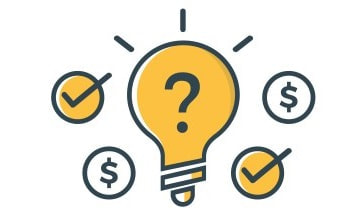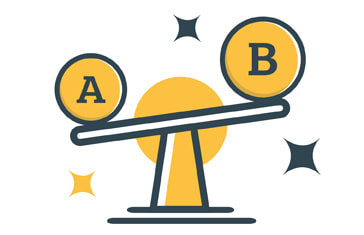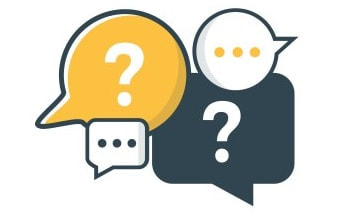Guarantors for Loans and Mortgages - The Definitive New Zealand Guide
If you have been asked to act as a guarantor for a loan or are thinking of asking someone to act as a guarantor, this guide explains what you need to know, including risks, alternatives and frequently asked questions.
Updated 8 November 2023
Summary
We cover:
Important: If have been asked to guarantee a car loan, our Car Loan Guarantors guide outlines what you need to know.
Related Guides:
Summary
- With rising interest rates and the cost of living increasing, getting approved for a home loan is increasingly difficult. Banks in New Zealand are now increasing the eligibility requirements before giving out home loans. This caution makes it much harder for New Zealanders to buy even a basic starter home.
- One alternative to getting a standalone home loan is to get assistance from a guarantor - someone who takes the risk and guarantees the repayment of the loan. However, the guarantor process has been a point of confusion and uncertainty for many.
- If you have been asked to be a guarantor, or if you're thinking about asking someone to act as one, this guide explains everything you need to know.
- Know This - Acting as a guarantor has many risks and is not something you should rush into. There are some legal documents, and you need to understand them before signing if you choose to do so.
- Remember - the loan you're guaranteeing has to be repaid, and you are the person who has guaranteed that will happen. You have to be prepared to fund whatever is owed.
We cover:
- Know This First - What Does it Mean to Sign on as a 'Guarantor?'
- Key Questions to Ask Before Signing on as a Guarantor
- What are the Potential Drawbacks of Becoming a Guarantor?
- Frequently Asked Questions
Important: If have been asked to guarantee a car loan, our Car Loan Guarantors guide outlines what you need to know.
Related Guides:
MoneyHub Founder Christopher Walsh shares his comments about acting as a guarantor:
|
"If you have been asked to act as a guarantor for a loan, there is no requirement to do so, and no one should pressure you into such a position. The personal financial risk you are under by acting as a guarantor is significant, regardless of the financial position of the person/people you guarantee the loan of".
"Get help immediately - talking to a lawyer or the Community Law Centre, which provides a free service, will help you assess your options. Many hard-working New Zealanders have lost everything by acting as a guarantor for a child or relative, often at an age where it's near impossible to 'start again'. You can be left bankrupt with no home, a $0 bank account and no car. Many family relationships have broken down after a guarantee is called - the aftermath can be complete financial ruin". "Before you agree to become a guarantor for someone, consider your financial situation. You need to be sure that you understand the terms and type of loan you're guaranteeing and the risks you're undertaking by signing on as a guarantor". "As a guarantor, you're accountable for paying the mortgage if the borrower can’t; you will have to pay back the whole mortgage plus any interest accrued. In addition, if you can’t make the repayments, the lender has the right to repossess your assets (home, car, investments) to pay off the loan". "That being said, thousands of New Zealanders happily sign up as guarantors every year to help a loved one. We've put this guide together to help explain what you need to know; the risks, the alternatives and your choices. Please read it carefully - we update it continuously in our efforts to raise awareness about acting as a guarantor". |
MoneyHub Founder
Christopher Walsh |
Know This First - What Does it Mean to Sign on as a 'Guarantor?'
This is best explained in an example:
- Suppose a lender is unlikely to lend you the money for a mortgage or loan based on your financial situation and risk profile on a standalone basis.
- In that case, the lender can ask for a guarantee from a third-party guarantor to strengthen the loan/mortgage application.
- It's most common for older (for example, parents) New Zealanders to be asked to sign as a guarantor for another family member (typically children or grandchildren), given the assets and income-earning ability they have.
- However, when someone agrees to become a guarantor, this places them at a significant risk. It's not witnessing a mortgage or loan agreement signing - it is creating contractual obligation to repay the borrower's mortgage/loan if they can't or won't repay their debt.
What Happens to my Assets if I’m Liable to pay off the Mortgage for a Borrower who’s Defaulted?
If you've signed a guarantor agreement with a borrower and they have defaulted on the debt, all assets under your name can be taken and offered to repay the debt. Note that any assets in a trust (such as a family home or inheritance) are protected and unlikely to be repossessed to pay off the debt.
Why Would I Want to Become a Guarantor?
It’s becoming more common for parents and grandparents to be asked to become guarantors for first home buyers looking at their first mortgages. With access to equity-rich homes and investments, as well as regular income and minimal consumer debt, parents/grandparents acting as guarantors can strengthen a mortgage application by a substantial amount.
Important: Becoming a guarantor can be a cost-effective way to help your children or family members to build their wealth and set up their financial future without having to physically lend or give them any money in the short term. However, guarantors are on the hook if the primary borrower defaults - if the debt isn't repaid, the guarantor will be chased and held personally liable. This means the lender can sell the guarantor's home, car or other property to settle the balance owed.
Important: Becoming a guarantor can be a cost-effective way to help your children or family members to build their wealth and set up their financial future without having to physically lend or give them any money in the short term. However, guarantors are on the hook if the primary borrower defaults - if the debt isn't repaid, the guarantor will be chased and held personally liable. This means the lender can sell the guarantor's home, car or other property to settle the balance owed.
When do I Know When I’m Ready to Sign on as a Guarantor?
A good test of whether you're prepared to act as a guarantor to a borrower is if you can comfortably pay off the total balance of the mortgage amount you're guaranteeing. If you can do this, your financial position will likely be good enough to act as a guarantor. However, this doesn't mean that your borrower is any more credible. It's still important to ensure the borrower is trustworthy, reliable and in a good enough financial position to make their mortgage payments.
Key Questions to Ask Before Signing on as a Guarantor
If you’re considering signing on to be a guarantor for someone else, there are a few key things to ask before you agree. While this list largely reflects mortgage lending (which usually means more money is guaranteed compared a personal loan), the questions relate to any potential guarantor.
Asking these questions can prevent further stress if something goes wrong:
Asking these questions can prevent further stress if something goes wrong:
- Why are you being asked to be a guarantor in the first place? Is it your place to do so? These questions relate to how well you know the borrower - are they family or someone you're close to?
- Do you have the financial means to be able to become a guarantor? Could you come up with the money to pay the mortgage if the primary borrower defaulted?
- Will the relationship be damaged if something happens and you’re forced to pay the loan? In many cases, non payment is financially ruinous for anyone guaranteeing a mortgage.
- Are you being forced into signing on as a guarantor? For example, are you being pressured by other family members out of guilt, even if you don’t feel comfortable signing on as a guarantor? Remember that becoming a guarantor is a significant responsibility and shouldn’t be taken lightly.
- Why does the primary borrower need a guarantor? Is it because they already have too much debt and don't have a high enough credit score? Also, do they have a high enough income to service the size of the mortgage?
- What's the primary borrower's attitude towards money? Are they likely to pay back their mortgage on time? Will they have enough money to continue paying if they lose their job? If the answer to these questions is no, you'll likely be liable to pay their mortgage.
- How mature is the borrower? Are they honest and trustworthy enough for you to be a guarantor to them?
- Is the mortgage for a first home, investment property or a business? Generally, new businesses are risky, and most don't survive within five years. Try to gauge what kind of risk the type of mortgage poses before signing on as a guarantor.
- Are you comfortable appearing as a guarantor on official documents such as your credit score?
What are the Potential Drawbacks of Becoming a Guarantor?
- Before you agree to become a guarantor for someone, consider your financial situation. You need to be sure that you understand the terms and type of loan you're guaranteeing and the risks you're undertaking by signing on as a guarantor.
- Becoming the guarantor on loan can be risky and you need to understand the risks. You should take the same caution and care towards becoming a guarantor as you would if you were taking out a mortgage solely in your name. To help you assess your situation, we list the most significant drawbacks to becoming a guarantor:
1. You’re Liable for the Debt if the Borrower can’t Repay the Loan
- You're a guarantor if you put your name down on a mortgage for a family member or a friend. You're accountable for paying the mortgage if the borrower can’t. If the borrower can not make the mortgage repayments, you will have to pay back the whole mortgage plus any interest accrued. In addition, if you can’t make the repayments, the lender has the right to repossess your assets to pay off the loan.
- Check whether you'll be capable of making the mortgage repayments if the primary borrower can't for whatever reason. As a guarantor, you will be on the hook for these payments if they can't make them.
- Next, work out how much you would have to pay back, taking into account factors such as the remaining mortgage amount, interest rate, expenses and charges. If you're a guarantor on the mortgage amount, you'll be accountable for the entire mortgage and all the accumulated interest.
2. It May Hinder You From Getting Future Loans
- If you intend to get a mortgage in the future, you may have to let your lender know you're a guarantor on another loan. Being a guarantor for another loan may impact your ability to get other loans or credit, even if the mortgage you're a guarantor for is being repaid on schedule. Be mindful of this if you're looking to purchase a property in the short term.
3. Being a Guarantor May Impact Your Credit History and Score in the Event of a Default
- Suppose you or the borrower you're acting as a guarantor for can't repay the loan/mortgage. In that case, it will be considered a technical default and will be listed on your credit score as if you defaulted on the loan, even though you only acted as a guarantor.
- This hit to your credit score will make it harder for you to borrow in the future.
4. It Can Jeopardise Your Relationship with the Person You're Acting as a Guarantor for
- If you're a guarantor for a family or friend who isn't able to repay the loan, it may have an impact on your ongoing relationship. For example, you may find yourself in a position where you must contribute to the mortgage interest payments or toward the deposit itself. These can strain a relationship that likely started strong.
- Our guide to lending money to friends and family extensively details these issues.
5. Understand the Mortgage Contract You're Signing up for
- Before signing to be a guarantor for someone else's mortgage, ask for a copy of the mortgage contract to fully understand the terms you're likely to be bound by in the event of a default by the primary party.
- Make sure you're comfortable with all the provisions in the mortgage contract. If you aren't, ask as many questions as possible to get comfortable with the terms. Don't feel pressured to sign as a guarantor if you're not comfortable with the contract.
- Get help - talking to a lawyer or the Community Law Centre, which provides a free service, will help you understand the fine print and your obligations.
Remember: Many hard-working New Zealanders have lost everything by acting as a guarantor for a child or relative, often at an age where it's near impossible to 'start again'. You can be left bankrupt with no home, a $0 bank account and no car. Many family relationships have broken down after a guarantee is called - the aftermath can be complete financial ruin.
Frequently Asked Questions
Will my Family Members Think Worse of me if I Decline to be a Guarantor?
It's hard to know what people will do and think, but a good family member shouldn't think worse of you if you decide not to take substantial risks and backstop them. You're not obligated to do so (even if you're family). You've got to make the best financial decisions for yourself, and if it doesn't make sense for you to become a guarantor, don't let other people discourage you from making the right decision.
Who Should Become a Guarantor?
Anyone can become a guarantor. But, in general, you'd want someone you trust and who has financial stability and is comfortable talking about that level of liability. People typically fall into this camp include parents, grandparents, close family or friends.
The Loan I'm Considering Being a Guarantor for isn't Fixed Term (it doesn't have a set end date). Should I Still be a Guarantor?
While mortgages with longer periods can be easier to pay off as you don't need to pay as much principal each year, your primary borrower will likely need to pay more interest over the life of the loan. Therefore, being cautious when guaranteeing mortgages without a precise ending date is recommended. Being a guarantor for a loan without an ending date can mean you're liable for the loan for much longer than you initially intended.
I've Signed on as a Guarantor, but the Primary Borrower has Defaulted, and I can't Make the Payments. What can I do?
Being a guarantor doesn't always work out as planned. Generally, you're on the hook if the borrower can't make their repayments. However, sometimes, you're not in a financial position to help and are looking for a way to get out of the mortgage contract. While it's relatively tough to get out of a contractual guarantor agreement, there may be a few things you can do, such as challenge a guarantor contract.
You may be able to challenge a guarantor contract if:
You may be able to challenge a guarantor contract if:
- You signed up to be a guarantor under duress or stress/fear
- You can prove the lender or broker tricked/misled you
- You had a mental illness or disability at the time of signing the guarantor contract
How can I Become a Guarantor?
Anyone can become a guarantor. However, that doesn't mean you should become one. You will become fully and unconditionally liable for any debt you sign as a guarantor. One of the main reasons why most guarantors are older is that they have the financial means to cover any debts the borrower ends up defaulting on. Therefore, make sure you're in a solid financial position before agreeing to be a guarantor, or you risk bankrupting yourself.
My Parents Want to Help me Buy my First Home but Don't Know the Best Way to Do so. What are their Options?
If your parents are comfortable with it, get them to act as guarantors to your first home. Instead of assisting with the deposit required for the mortgage, the guarantor supplies the bank with an assurance secured by their assets (or equity from their property). If the mortgage is managed well, your parents can be eliminated as guarantors within a few years. Note that this is a higher-risk option than providing a loan/deposit.
My Parents Don't Like the Concept of Becoming Guarantors but Still Want to Help me Buy my First Home. What are Some Alternatives to this?
If your parents fear losing their family home if they become guarantors but still want to support you, there are a few alternatives. Depending on where the borrower is looking to purchase, most banks in New Zealand will require a minimum 20% deposit to get a mortgage. This threshold is a high hurdle for any New Zealander.
Alternatives a guarantor for a mortgage include:
Alternatives a guarantor for a mortgage include:
- 'Bank of Mum and Dad' - this is where an initial deposit to purchase a home is given as a gift or in the form of an interest-free loan. This approach is safer than finding a guarantor as there's much less risk/liability to a first home buyer's parents.
- Offset mortgage - An offset mortgage links your mortgage to your everyday cash savings account, which can include your family's accounts. The total sum of your savings is deducted from your mortgage balance, which reduces your monthly interest costs and repayments. Our guide to offset mortgages explains more.
Related Guides

